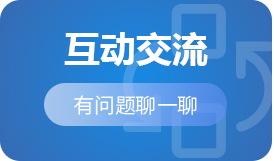Strengthening and learning from China’s work in Disaster Risk Reduction
Since June, China has been battling severe flooding caused by unprecedented rainfall, especially in basin areas of the Yangtze and Huaihe rivers. These floods have caused tremendous economic damage, that the State Council of the People's Republic of China recently announced 100 billion yuan ($14.53 billion) to post-flood recovery and reconstruction efforts.
To guard against such disasters, the UN Office for Disaster Risk reduction (UNDRR) calls on countries to increase their understanding of risk and drivers of risk as a prerequisite to developing disaster preparedness and risk reduction plans.
A key tool in this process is the Sendai Framework Monitor, which is an online platform launched by UNDRR in 2018 to help countries track the impact of disasters across a number of indicators and to monitor their progress in the implementation of the Sendai Framework for Disaster Risk Reduction 2015-2030.
To orient officials to the use of the Monitor and strengthen data collection and reporting across ministries, UNDRR and China’s Ministry of Emergency Management organised on 27 August a workshop with participants from China and a number of UN staff members based in the Democratic People’s Republic of Korea.
Opening the workshop, Mr Guo Zhijun, Deputy-Director General of the Department of International Cooperation and Rescue in MEM, said:
“We firmly believe that this meeting will further deepen practical exchanges between the two sides, explore new ways of cooperation, and advance global disaster reduction and disaster relief in the post-epidemic era.”
This sentiment was echoed by UNDRR’s Regional Chief for Asia and the Pacific, Ms Loretta Hieber Girardet, who lauded China for its extensive work in disaster risk reduction and willingness to share its lessons with other countries.
“With just under 20% of the world’s population, we are grateful China is leading by example by recording its disaster damage and loss in the Sendai Monitor and we encourage China to continue to do, especially against all seven targets of the Sendai Framework.”
Commenting on the significance of this workshop, Mr Timothy Wilcox, who served as UNDRR’s lead workshop facilitator, said:
“Not only is the first fully-online workshop on Sendai Framework Monitoring that we have offered a Member State in the region, but we are happy to have been able to convene such a large number of government and UN agencies from various sectors.”
This diversity is critical to ensuring the collection and recording of disaster damage and loss data, which often exists in silos.
In response to the workshop, officials from China’s Ministry of Housing and Urban-Rural Development, Ministry of Water Resources and the Ministry of Transport, all discussed with MEM how they can strengthen collaboration on data sharing and Sendai Framework implementation.
The workshop also served a platform for China to share some of its achievements in areas of understanding risk, as participants received a briefing on the recently released 2019 Global Natural Disaster Assessment Report. The briefing, conducted by Professor Saini Yang of Beijing Normal University, who noted that a full English translation has just been completed.
Not to be forgotten, the role of local authorities and cities in the collection, reporting, and utilization of disaster-related data was also emphasized. Speaking from Incheon, South Korea, the head of UNDRR’s Global Education and Training Institute (GETI), presented a preview of the soon to be launched Making Cities Resilient 2030 (MCR2030) initiative, which places the understanding of risk to inform planning as the first step to building urban resilience.
Closing the workshop, Mr Wilcox encouraged participants to make use of the online E-learning training course on the Sendai Framework Monitor, which is available in multiple languages, including Chinese. This free online course was developed by UNDRR and the Asian Disaster Preparedness Center and was designed to guide officials from Member States on how to prepare and upload national and local data to the Sendai Framework Monitor.
Source:United Nations Office for Disaster Risk Reduction - Regional Office for Asia and Pacific






